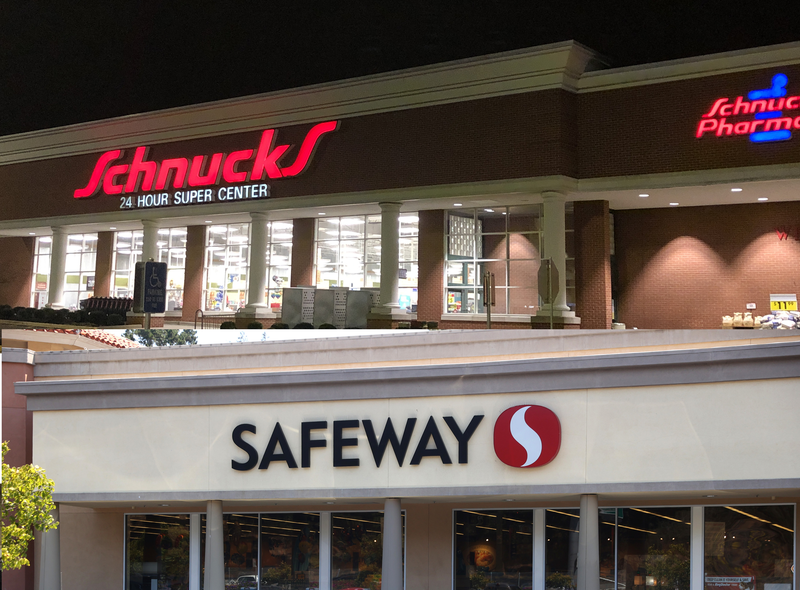
Schnucks Chicago? Schnucks Colorado? Schnucks Dallas?
If the national grocery giants Kroger and Albertsons get to merge, they almost certainly will have to sell off banners in duplicate markets, which could mean chains like Mariano's in Chicago or Safeway stores around Denver would become available.
"If presented with that, yeah, we'd look at it," Schnucks Chairman and CEO Todd Schnuck replied when asked by a KMOX reporter if the family-owned grocer would consider geographic expansion through acquisition.
Schnucks has done business with Kroger before, getting in and out of areas like Rockford, Illinois and Memphis, Tennessee. But obviously a market the size of Chicago, Denver, or Dallas would be completely different ballgames for a chain rooted in mid-size St. Louis.
So, would Schnucks consider it?
"We're always looking. We're always trying to be opportunistic," Schnuck says.
"It's like the Chinese proverb, where the same character or the same symbol is said to mean both danger as well as opportunity," renowned retail analyst Burt Flickinger tells KMOX. "Schnucks' strategy has been the best strategy: to make acquisitions from divestitures in manageable pieces."
He says one pitfall could be overextending the company's supply lines, pointing to an old decision by National supermarkets to enter Chicago and New York State, instead of focusing on St. Louis and New Orleans.
Flickinger can't speak specifically to cities which might be have to be sold by Kroger and Albertsons because he's actually consulting right now for the Federal Trade Commission on competition concerns related to the merger.
But he does share an interesting story from about a dozen years ago, when Schnucks took a look at leaping into Phoenix, Arizona.
"Wells Fargo put me on the board of Bashas' Food and Drug in Arizona, which was a multi-format retailer, to help bring them back out of bankruptcy," he says. "Schnucks could've bought Bashas', but I think they were smarter, staying in a geographically contiguous region, rather than looking at buying a Bashas' in Arizona or a Haggen in Washington State."
Flickinger also says Schnucks clearly desires to remain independent. He says the family turned down "some very attractive buyout offers" in the late 90s and years since from other regional grocers which are part of the same purchasing alliance; members of that group over time have included names like Texas' H-E-B, the northeast's Wegmans, and Florida's Publix.
Kroger and Albertsons expect to have to sell or spin-off about 650 stores. There are concerns that might not be enough to satisfy regulators about the $24.6 billion acquisition. The FTC is also asking other, reigonal grocery firms for their thoughts on the proposed transaction.
Even if Schnucks doesn't decide to make an out-of-town purchase, could the emergence of a new national competitor have an impact locally?
"It's not surprising to me that they would want to merge because of the scale of [competing against] a Walmart or an Amazon," Schnuck said. But "is it a good thing? I'm not so sure about that."
